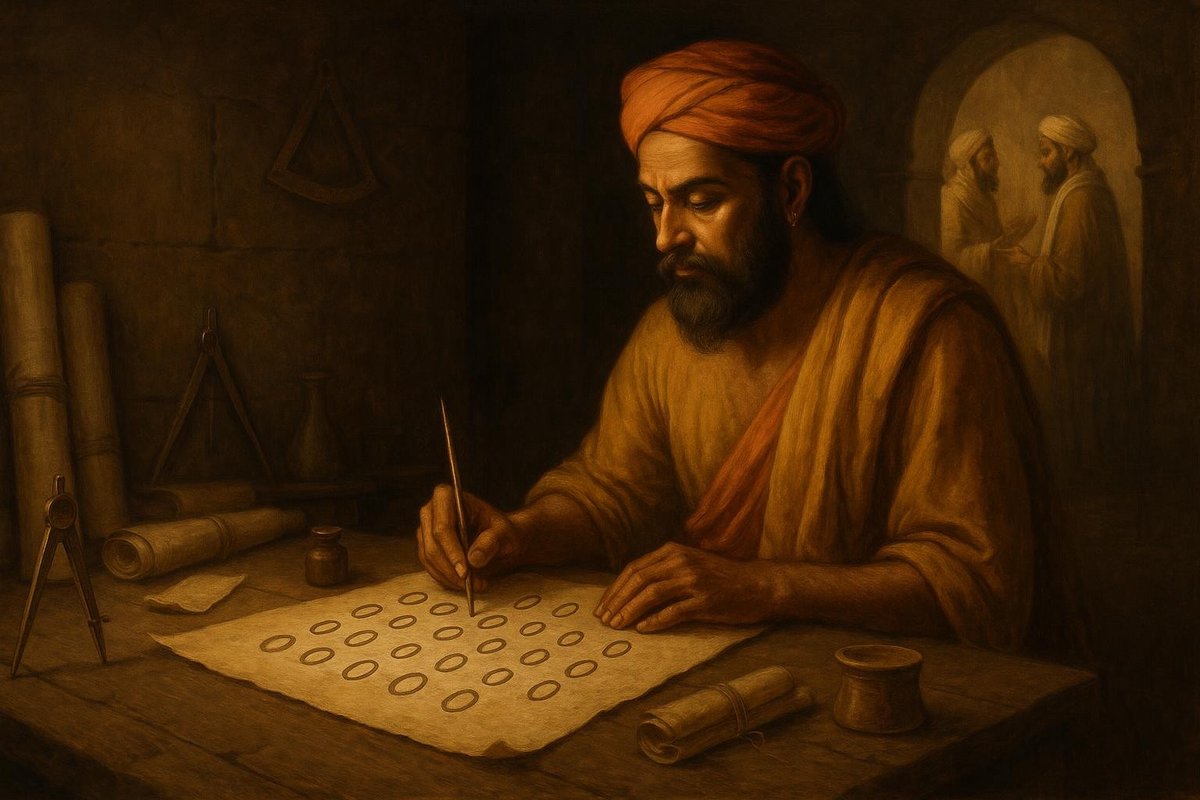
Early Influences
In the vast tapestry of human history, it’s intriguing how the concept of zero, seemingly nothingness, emerged as a cornerstone of mathematics. Long before it became essential, civilizations functioned without it. Early counting systems, like those of the Egyptians and Romans, thrived using symbols and letters, but struggled with the complexities of large numbers. Interestingly, the seeds of zero were sown in the fertile intellectual grounds of ancient India. Around the 5th century, Indian mathematicians began to recognize zero as more than a placeholder.
- Early counting systems were limited without zero.
- In India, zero was identified as a number in its own right.
- Zero’s emergence transformed arithmetic and algebra.
The Indian mathematician Brahmagupta is often credited with formalizing zero. In his seminal work, he described properties of zero, including operations involving it. His intellectual style was characterized by a methodical approach to abstract concepts, which resonated with the philosophical inquiries of his time. No wonder this was the period when Indian scholars were making significant strides in astronomy and mathematics.
Mental Models
Of course, the acceptance of zero went beyond a mere mathematical curiosity. It required a shift in the mental models of societies. This new way of thinking about numbers allowed for significant advancements. The introduction of zero supported the development of the decimal system, simplifying calculations and paving the way for algebraic thought. Arabic scholars, recognizing its value, adopted these ideas rapidly. In the 8th century, scholars like Al-Khwarizmi translated Indian texts, further embedding zero in mathematical studies.
- Zero facilitated the development of the decimal system.
- Arabic scholars played a crucial role in spreading zero.
- Al-Khwarizmi was instrumental in translating and expanding on these ideas.
This transformation in thought was not merely academic; it had profound implications for commerce, navigation, and science. As time goes on, it’s clear how pivotal zero became for the advancement of knowledge, allowing societies to solve complex problems with unprecedented precision.
Challenges & Resilience
Yet, the journey of zero was not without challenges. European scholars were initially resistant. The Roman numeral system, deeply ingrained in their educational and commercial fabric, posed significant obstacles. But intellectual resilience was a hallmark of this era. The 12th-century translation movement in Spain became a crucial turning point.
- European resistance to zero was rooted in tradition.
- The Spanish translation movement introduced zero to Europe.
- Zero’s acceptance required a paradigm shift in thinking.
The scholar Fibonacci, known for the Fibonacci sequence, was a pivotal figure in this narrative. His travels exposed him to the Arabic numeral system, including zero, which he championed upon returning to Europe. The cultural and intellectual exchanges, driven by trade and exploration, eventually eroded the resistance, leading to the widespread adoption of zero, which revolutionized European mathematics.
Legacy
Reflecting on zero’s journey, its legacy is profound. The acceptance and integration of zero in mathematics facilitated the scientific revolution, impacting fields like calculus and physics. Without zero, the digital age, characterized by binary code, would be unimaginable.
- Zero is fundamental to calculus and advanced mathematics.
- The digital age relies on zero in binary coding.
- The scientific revolution was fueled by zero’s mathematical implications.
Zero’s intellectual lineage illustrates how a simple concept can drive monumental shifts in human understanding. As we continue to explore the universe, zero remains a testament to human curiosity and resilience. Its discovery and integration into the fabric of mathematical thought underscore the importance of openness to new ideas and the courage to challenge established norms.
Fuel Someone Else’s Curiosity
Have you ever wondered how different our world would be without the concept of zero? Share this article with friends and spark a discussion about the profound impact of this seemingly simple number. By exploring its journey, you might just inspire someone else to ponder the incredible tapestry of human intellectual history.

Leave a Reply